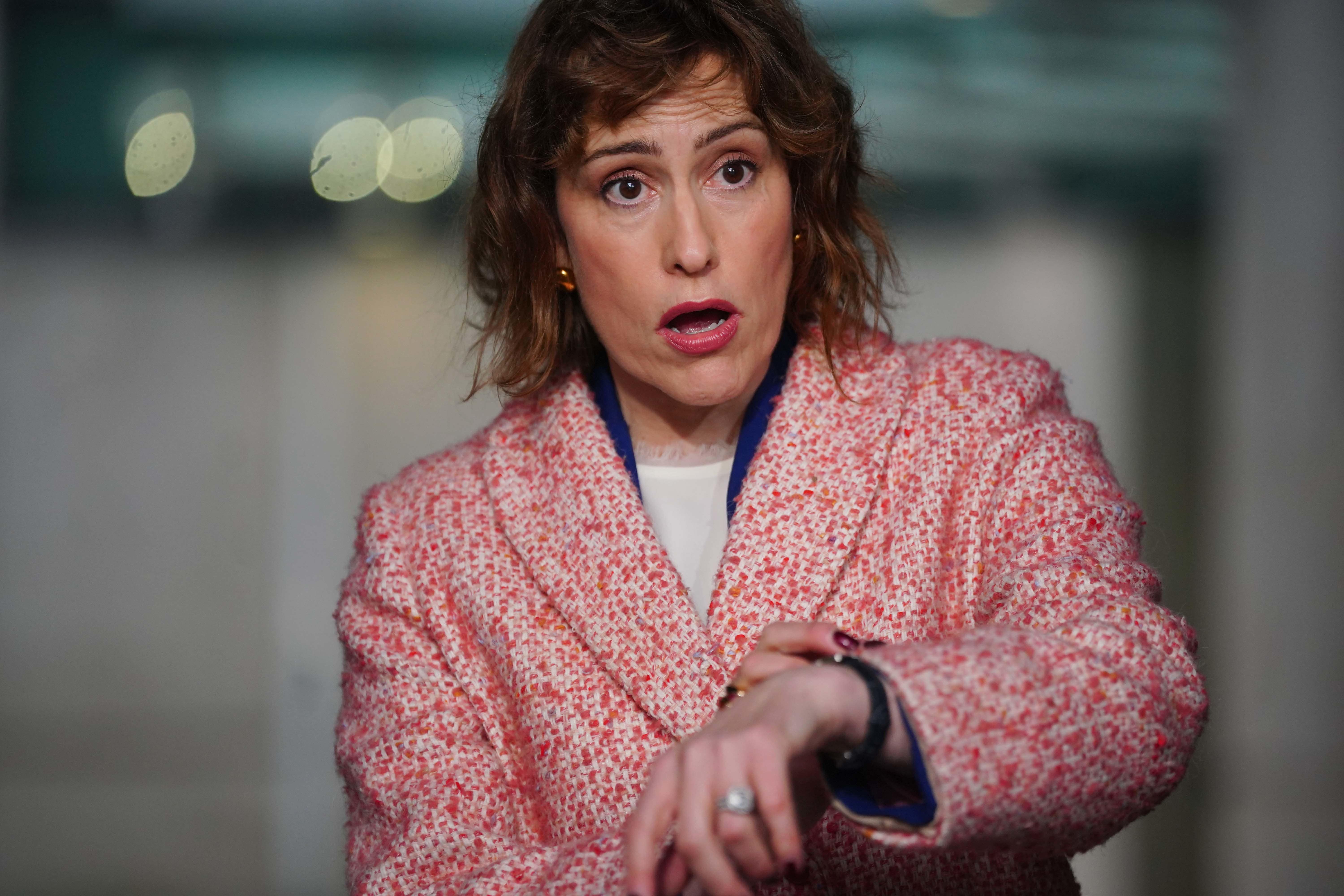The NHS needs a health secretary who will be radical about reform
Editorial: It is an extraordinary thing that Victoria Atkins, with the vast bureaucracy and wealth of data and expertise at her command, is doing a worse job of sketching out a vision for the future of health and social care than her Labour counterpart

Like being the water purity press officer for Thames Water or compliance manager for GB News, a Conservative health secretary is very usually on a hiding to nothing – or to turn to another, still more obvious cliche, invariably presented with a compulsory “hospital pass” with no exemption clause.
Victoria Atkins is only the latest to be wheeled out to defend the indefensible, and it is fair to say that she is proving worse at the task than most of her predecessors. Although, had Therese Coffey, Liz Truss’s eccentric pick for the high-profile role, lasted for more than a few weeks she’d probably have mined the very nadirs of public respect even more determinedly than Ms Atkins.
Try as she might, on the morning media round Ms Atkins somehow managed to turn what should have been a mildly encouraging piece of news for the government, which is that National Health Service waiting lists are edging down again, into a bit of a debacle.
She was wise not to attempt to fool the public into thinking they had suddenly arrived at long last on Rishi Sunak’s fabled paradise island, but she did spectacularly fail to make a case for the government. Like so many ministers, she seemed poorly prepared, inept and fearful of admitting some of the grimmer realities about the prospects for the NHS, all too obvious to the rest of us.
When she was asked on television if she could name any hospital trust that was exceeding its targets she declined to do so, supposedly because she didn’t want to pit NHS trusts against one another (which must be news to them). Ms Atkins has been in the post since November, and has a reputation for diligence, so she ought to have done better. It actually suggests that the problems are not so much with Ms Atkins, poor media performer as she is, but with the situation itself.
To be fair to Ms Atkins, she did talk about how reforms to the NHS could raise productivity, and mentioned how former health secretary Jeremy Hunt, now handily ensconced at the Treasury, was investing billions in new technologies and his workforce plan; but she sounded stumped when it was pointed out to her that countless of her predecessors, including Mr Hunt in his time, had made similar promises, and consistently failed to deliver.
Ms Atkins was also confronted with the dire state of the economy, and phantasmagorical delusions that underpin Mr Hunt’s plans for public spending. Assuming that vast swathes of the public sector, including near-bankrupt local authorities, will be able to withstand real-term spending cuts of around 20 per cent by 2028 is “heroic” to say the least.
Yet that is the basis for the present programme of tax “cuts” (ie partial rebates on increases) and the very small increase in NHS resources currently planned. Ms Atkins is unable to justify the chancellor’s unrealistic plans, nor why the government is cutting taxes at a time when NHS waiting lists remain higher than when Mr Sunak made his ambitious “key priorities” pledge in January 2023 to reduce them. That’s because those particular fiscal circles cannot be squared.
The lingering effects of the Covid pandemic and industrial action by doctors and nurses have not helped the NHS, but a shrewd politician knows that every promise they make has to have a near-certain chance of success – unless they want to be defined by failure on their own terms.
In focusing on waiting lists, Mr Sunak should also have realised that they will in any case always invite an unflattering comparison with where things stood when the Conservatives took power in 2010 and, in an uncomfortable partnership with the Lib Dems, embarked on their austerity drive. Health is not an issue the Tories can ever make into a positive, and it was a touch arrogant for Mr Sunak to fancy that he could.
Ms Atkins would be far better advised to level with the public about the crisis in the NHS, take responsibility for the situation and explain how the government proposes to do more with less. She should also say far more about how she will try to solve the social care crisis, the “Cinderella” part of her portfolio, as the population ages and chronic post-Brexit labour shortages continue.
None of our political parties, to their shame, has yet come up with a realistic comprehensive plan, though Wes Streeting, Ms Atkins’ voluble shadow has come closer than others.
It is an extraordinary thing that Ms Atkins, with the vast bureaucracy and wealth of data and expertise at her command, is doing a worse job of sketching out a vision for the future of health and social care than her Labour counterpart. But at the moment it is Mr Streeting who is sounding the more hard-headed and radical about reform – and rightly advocating a cross-party long-term policy for social care.
Perhaps that is a cop-out; but the least Ms Atkins could do is to join Mr Streeting and the other parties in framing such a plan, so long overdue. It would take some of the pressure off her when she next meets an interviewer, which would be good for her stress levels.






Join our commenting forum
Join thought-provoking conversations, follow other Independent readers and see their replies
Comments